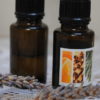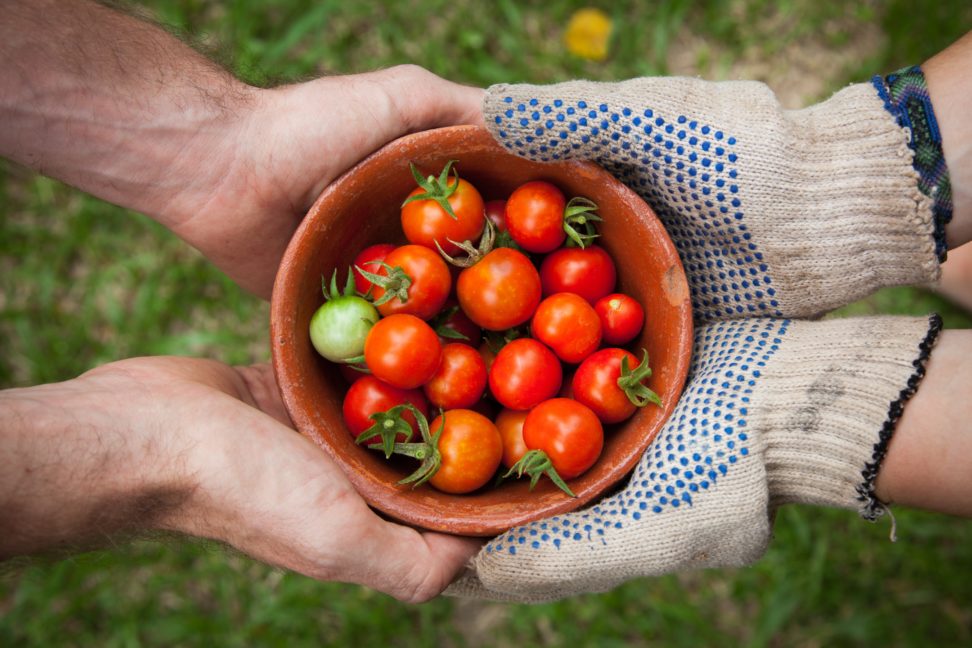Why do I talk about buying organic all the time?
I grew up on a farm. I can remember running and playing in the fields. I also remember the planes flying through the sky, spraying the fields.
Today, I know pesticides are connected to Parkinson’s disease later in life. I also know this fact through firsthand experience because my dad developed Parkinson’s. He first started to notice tremors right before he turned 60. Through a series of doctors’ visits, he ended up at OHSU, and two of the questions proposed by the medical team were: “Were you ever exposed to pesticides?” and “Do you know if any of your family members have Parkinson’s?”
The answer turned out to be “yes” to both questions. At the time, we learned that one of his cousins, who spent time on the family farm playing and running through the sprayed fields with dad as kids, had also developed Parkinson’s. The doctors explained that there is a link to pesticide exposure and Parkinson’s.
And, for my mom, years later, both she and the neighbor came down with cancer. We had learned that there had been arsenic in the well water, and as a family, we wondered about the farm pesticides leaking into the well water and affecting our family.
When my husband and I moved recently, this family history and experience presided over the property search. I had stipulations on where we were going to live, like avoiding purchasing land near a farm. I wanted to reduce my and my family’s exposure to pesticides — and staying clear of farm activity was a requirement.
Today, I’m writing to you from our home that is close to trees and forests, not farmland. I’m grateful we found the distance we needed. Distance is the right word and “plan.” We all need to create some distance between us and pesticide exposure.
Why and How to Limit Exposure
In addition to the personal story above, I want to pass along information and resources. In simple terms, pesticides can disrupt your body’s normal functions, breaking down the body to the point that degenerative disease appears, such as asthma, cancer, reduced male fertility, and more.
In Pesticides and human chronic diseases: evidences, mechanisms, and perspectives, the authors write, “In this review, we present the highlighted evidence on the association of pesticide’s exposure with the incidence of chronic diseases and introduce genetic damages, epigenetic modifications, endocrine disruption, mitochondrial dysfunction, oxidative stress, endoplasmic reticulum stress and unfolded protein response (UPR), impairment of ubiquitin proteasome system, and defective autophagy as the effective mechanisms of action.”
While that sounds complicated, you can look through the list of articles that these authors link at the end of their piece, and you’ll see that theme of disturbed body functions and related degenerative disease.
The National Institute of Environmental Health Sciences states that there are “more than 200 papers published in the peer reviewed scientific literature. These studies have linked pesticides to risk for Parkinson’s disease, thyroid disease, diabetes, kidney diseases, rheumatoid arthritis, and shingles (herpes zoster), among other health issues. Evidence suggests that children are particularly susceptible to adverse effects from exposure to pesticides, including neurodevelopmental effects.”
Now that we can see the data, how do we limit exposure? Well, the simplest step is to eat organic food, homegrown food, or food from trusted sources.
One study completed on pesticide exposure showed how “an organic diet was associated with significant reductions in urinary excretion of several pesticide metabolites and parent compounds. This study adds to a growing body of literature indicating that an organic diet may reduce exposure to a range of pesticides in children and adults.”
You can find an organic farmer and buy organic at the store. I’d recommend talking with farmers when you go to the farmers market. I’ve learned over the years that for farmers to receive the organic certification can be quite expensive. Just ask questions, like are you an organic farm or do you spray anything on your produce? If a farmer follows organic practices, certification or not, you can decide; it might be a doable option.
You can also join a local CSA (Community Supported Agriculture), where you can get a monthly supply of fresh fruits and veggies. Some CSAs also offer eggs, milk, and meat. I’ve picked Stoneboat Farm for our CSA, which is run by two brothers who are all about organic.
For those in the Northwest, you can find a CSA by searching https://www.pnwcsa.org/find-a-farm. Also, ask your friends and family for their recommendations for local produce.
As always, drop me a line if you have any questions!



![z31[1]](https://simplywholebydevi.com/wp-content/uploads/2018/06/z311-100x100.jpg)












